How to Light a Light Bulb with a Battery: 5 Fun & Family-Friendly DIY Lighting Projects!
Welcome to the world of creative, hands-on family-friendly home decor! If you've ever wondered how to light a light bulb with just a battery — and not just as a science experiment but as part of your interior design — then this article is your guide to making magic happen. We're blending science, safety, and style into fun DIY projects perfect for curious kids and design-savvy parents alike.
Table of Contents
- Why Use a Battery-Powered Light in Home Decor?
- What You Need: Essential Materials
- Step-by-Step Guide: How to Light a Light Bulb with a Battery
- 5 Creative Ways to Use Battery-Lit Lights at Home
- Buying Guide: Choosing the Right LED Bulbs & Batteries
- Safety First: Tips for Kids & Adults
- Conclusion
Why Use a Battery-Powered Light in Home Decor?
Battery-powered lights are more than just camping essentials or holiday decorations. They bring flexibility, creativity, and energy efficiency to your home design. Here’s why they’re a smart choice:
- No wiring required: Ideal for renters or those who want a quick change.
- Portable lighting: Great for dark corners, outdoor spaces, or temporary setups.
- Energy-efficient LEDs: Low power usage means longer battery life and lower costs.
- Safety first: Perfect for kids’ rooms or play areas where electrical sockets can be hazardous.
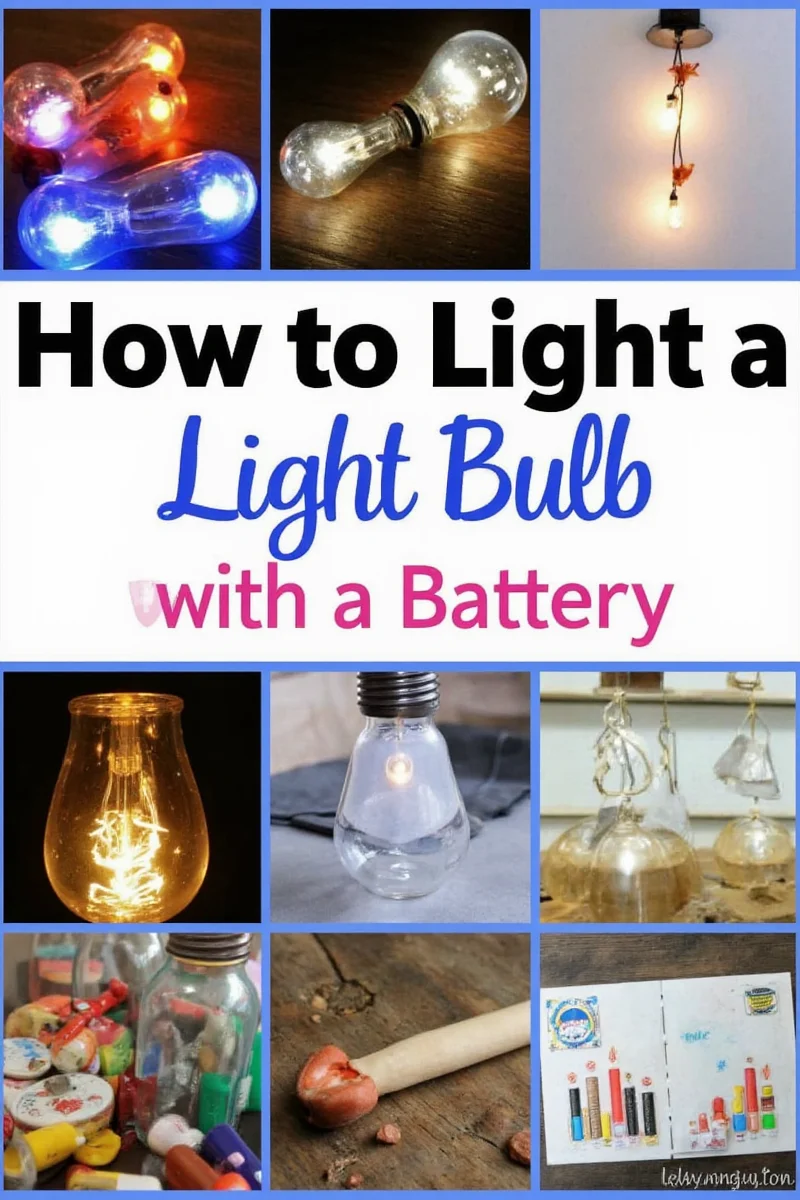
What You Need: Essential Materials
To light a bulb using a battery, you don't need much — just a few basic supplies. Let’s break down what you’ll need for a simple project that even kids can do safely:
- A small LED light bulb (preferably with two exposed wires)
- An AA, AAA, or 9V battery
- Two pieces of insulated copper wire with stripped ends
- Alligator clips (optional for easy connection)
- Tape or a battery holder (for stability)
| Material | Purpose | Recommended Type |
|---|---|---|
| LED Bulb | Lights up when connected | Mini LED with pre-wired leads |
| Battery | Power source | AA, AAA, or 9V (depending on bulb size) |
| Copper Wire | Conducts electricity | Insulated with 1–2 cm stripped ends |
| Alligator Clips | Connect components easily | Red and black for polarity |
Step-by-Step Guide: How to Light a Light Bulb with a Battery
Let’s get scientific — and a little magical — by turning a simple battery into a mini light show. Follow these steps carefully:
- Gather your materials. Make sure all wires are stripped and ready.
- Attach one wire to the positive terminal of the battery.
- Connect the other end of that wire to one lead of the LED bulb.
- Take the second wire and connect it from the negative terminal of the battery to the remaining lead of the LED bulb.
- Secure everything with tape or clips and watch your bulb light up!
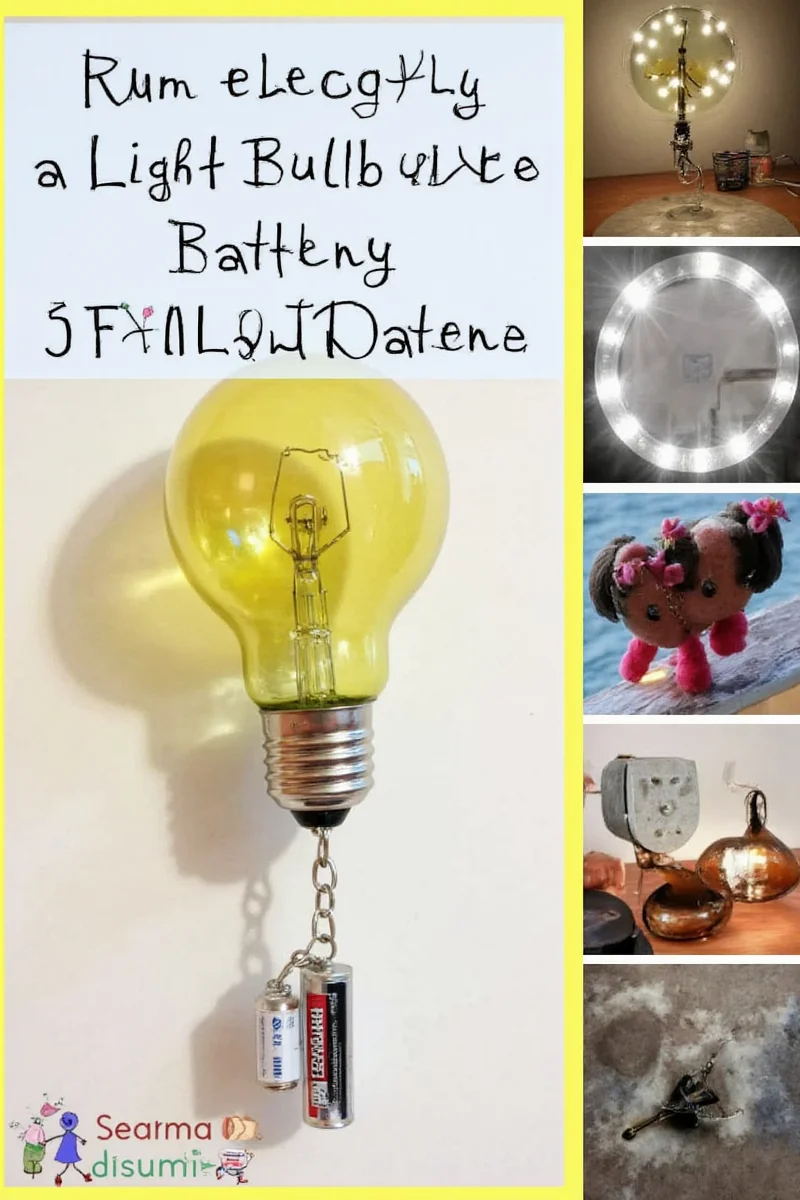
If your bulb doesn’t light up, check the connections and make sure the battery has charge. Also, ensure the LED is oriented correctly — some only work if the polarity matches.
5 Creative Ways to Use Battery-Lit Lights at Home
Once you’ve mastered the basics, it’s time to turn those tiny lights into big ideas! Here are five clever ways to incorporate battery-powered lights into your home decor:
- Jar Lanterns: Place small battery-powered LED bulbs inside mason jars with holes punched into the lid for a rustic glow.
- Night Light Art: Create framed shadow boxes with hidden LED lights that illuminate artwork or photos softly.
- Fairy Light Mason Jar: Wrap fairy string lights powered by batteries around vases or bottles for a romantic touch.
- Kids' Room Accent: Build a glowing “moon” using an LED bulb and paper mache ball for a dreamy bedroom decoration.
- Outdoor Table Centerpieces: Use waterproof LED bulbs in glass bowls filled with water and floating flowers for patio parties.
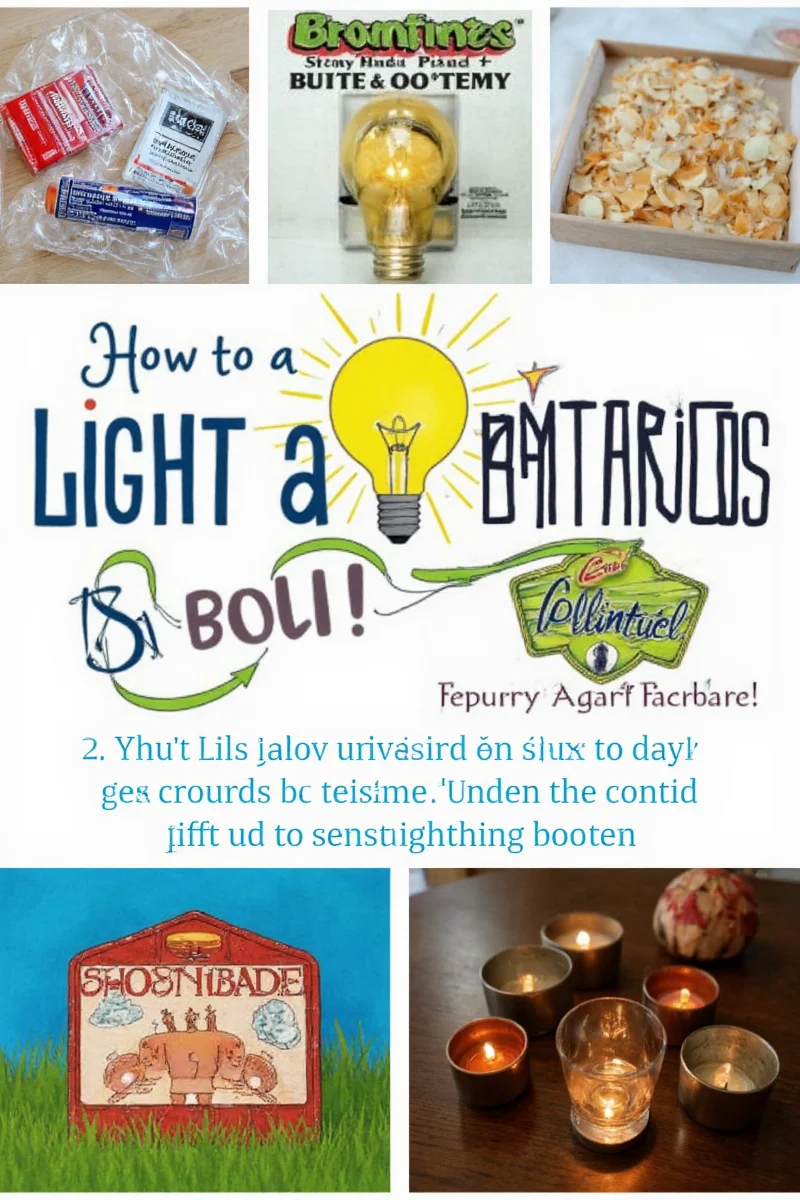
Buying Guide: Choosing the Right LED Bulbs & Batteries
Not all bulbs and batteries are created equal. Here’s a breakdown of what to look for when shopping for your next DIY lighting project:
Best LED Bulbs for DIY Projects
- Type: Look for mini LEDs with pre-attached wires for easier setup.
- Color Options: Choose warm white for cozy lighting, cool white for reading nooks, or colored LEDs for festive touches.
- Voltage: Match the voltage of the bulb to the battery. For example, 3V LED works well with CR2032 coin cells.
- Dimmable: Some advanced models allow dimming via remote or app control.
Recommended Batteries
- Alkaline: Long shelf life, great for occasional use (e.g., AA/AAA for most DIY setups).
- Lithium: Longer lasting and better for cold environments (ideal for outdoor use).
- Rechargeable: Eco-friendly option; just remember to keep spares charged.
| Product | Description | Use Case | Best For |
|---|---|---|---|
| GE Bright Stikz LED String | Flexible string with built-in battery pack | Hanging in shelves or wrapping around furniture | Beginners, kids, rental apartments |
| EcoSmart Rechargeable LED Bulb | USB-rechargeable, adjustable brightness | Desk lamps or accent lights | Eco-conscious families, frequent users |
| Energizer Ultimate Lithium Battery | Long-lasting, leak-proof, extreme temperature resistant | Outdoor or seasonal decor | Camping enthusiasts, party planners |
Safety First: Tips for Kids & Adults
While lighting a bulb with a battery is a safe and fun activity, it's always good to set ground rules, especially when working with kids:
- Never use household AC current — stick to low-voltage DC systems like batteries.
- Use insulated tools to avoid accidental shocks.
- Supervise young children during hands-on experiments.
- Avoid overheating — remove batteries after use to prevent leaks.
- Teach about polarity — helps reinforce basic physics concepts in a real-world way.
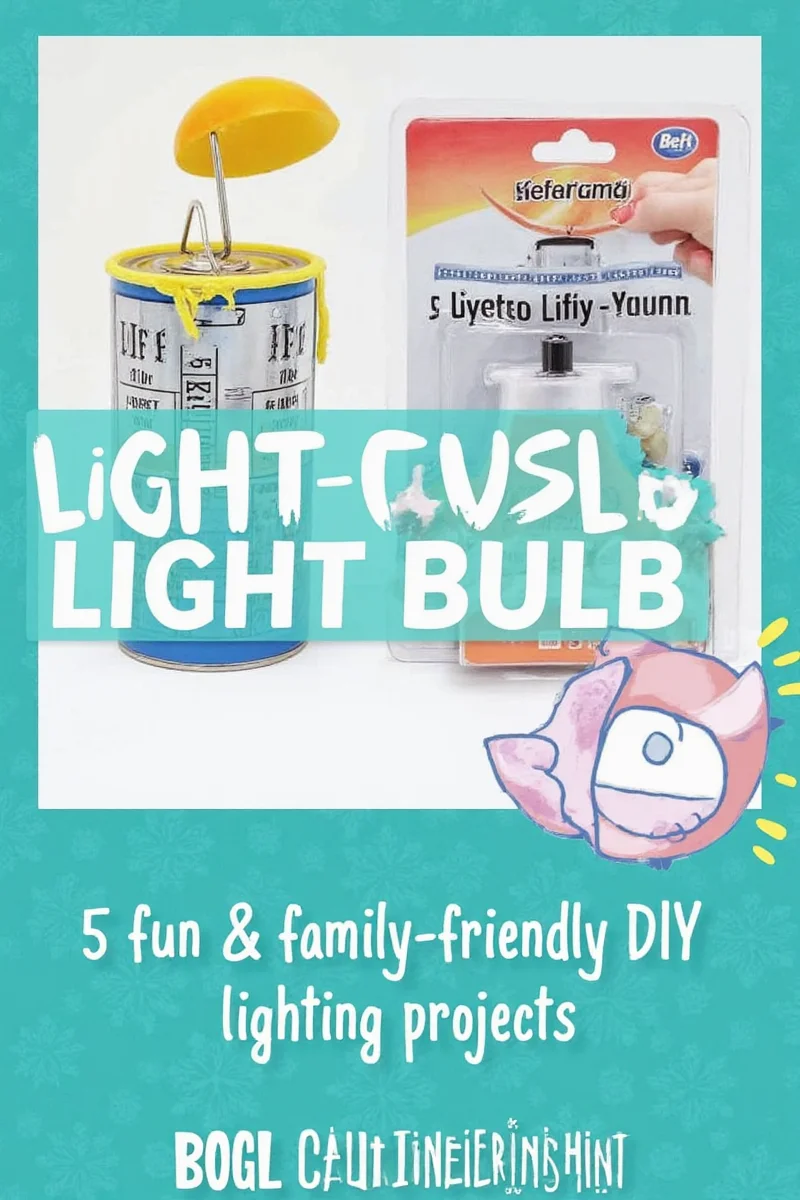
Conclusion
Learning how to light a light bulb with a battery isn't just a science lesson — it's a doorway to creativity, sustainability, and personalized home decor. Whether you're sprucing up your space with soft glows or crafting a science fair project with your child, the possibilities are endless.
So grab some LEDs, gather your family, and let your inner designer shine. Remember, the best home decor isn’t just beautiful — it’s interactive, meaningful, and sometimes lit by a humble battery.
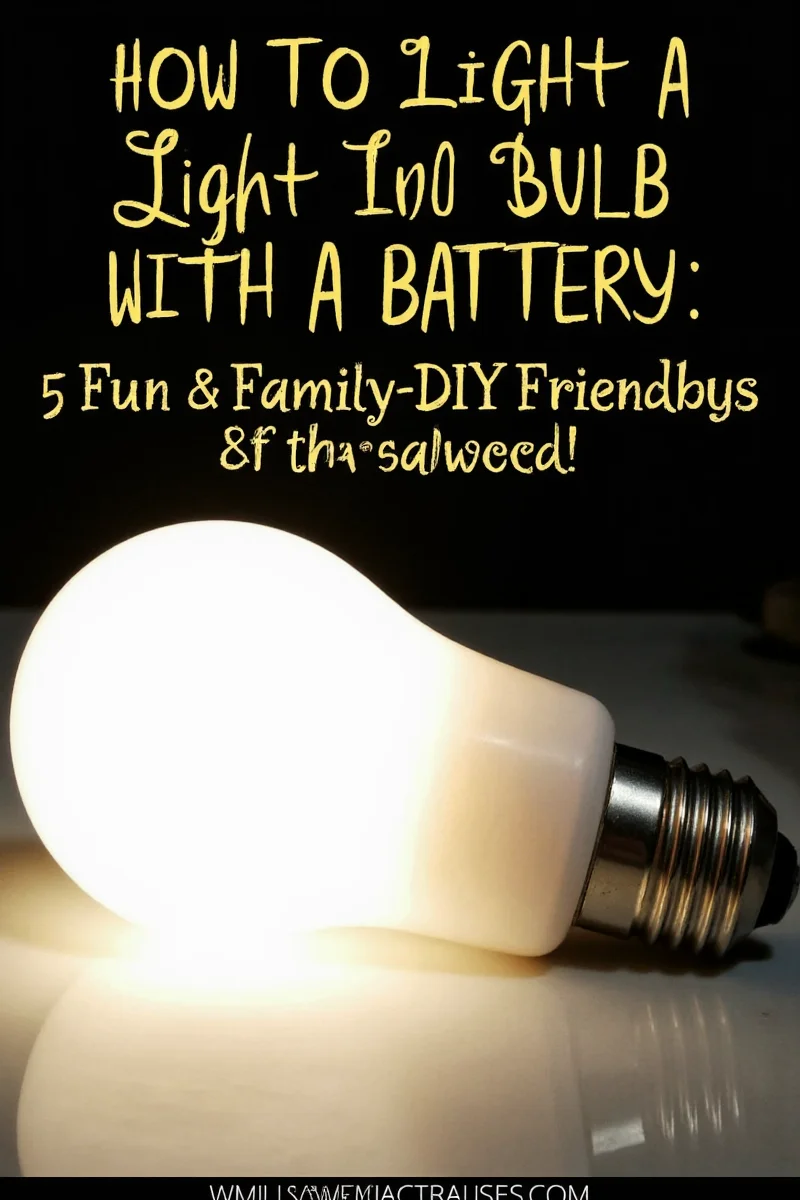

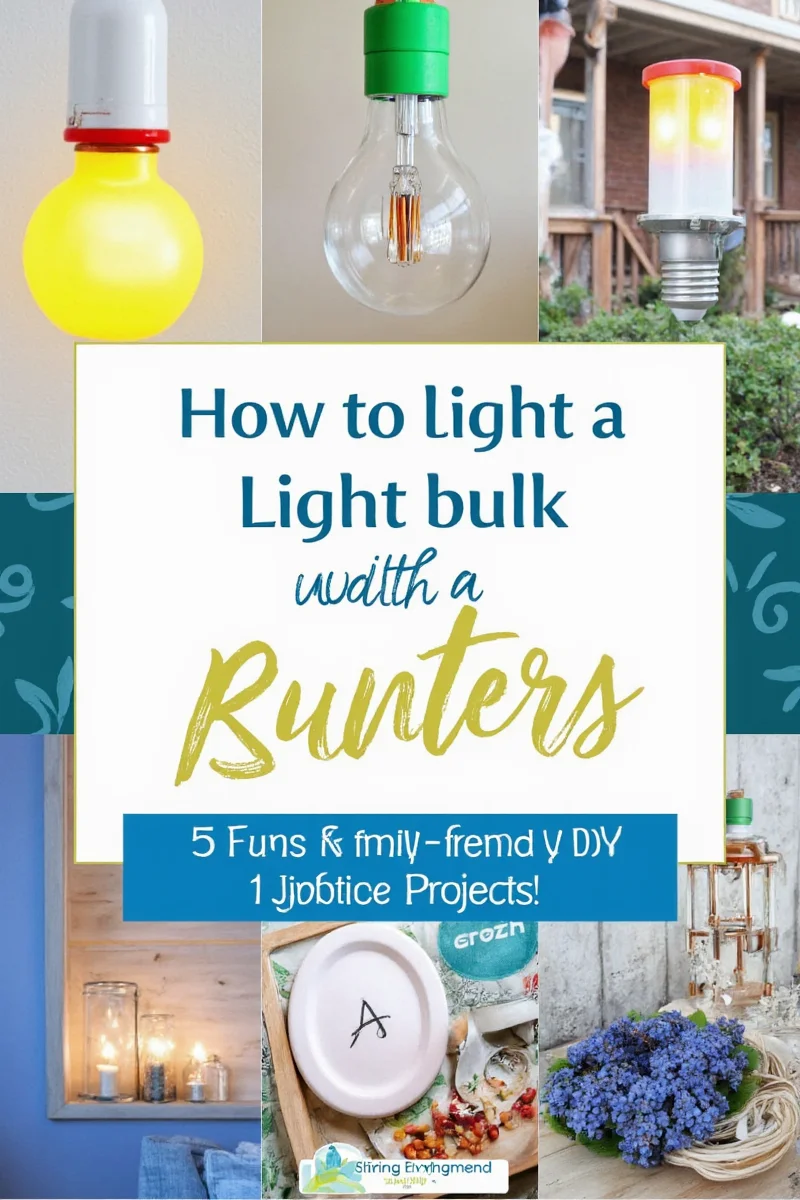









 浙公网安备
33010002000092号
浙公网安备
33010002000092号 浙B2-20120091-4
浙B2-20120091-4